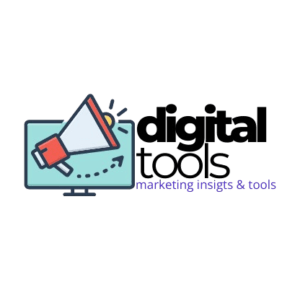Introduction
Search Engine Optimization (SEO) can feel overwhelming, especially if you’re just starting out. But here’s the good news: you don’t need to spend a fortune to get started. There are plenty of free SEO tools that can help you optimize your website, analyze your performance, and climb the search engine rankings.
In this guide, we’ll walk you through the best free SEO tools for beginners, explain how to use them, and share tips to get the most out of them. Whether you’re a blogger, small business owner, or aspiring marketer, these tools will set you up for success.
Why Use Free SEO Tools?
Before diving into the tools, let’s talk about why they’re essential:
- Cost-Effective: Perfect for beginners or those on a tight budget.
- User-Friendly: Most free tools are designed with simplicity in mind.
- Actionable Insights: They provide data to help you make informed decisions.
- No Commitment: Test tools without signing up for expensive plans.
Now, let’s explore the best options available.

1. Google Analytics
What It Does:
Google Analytics is a powerhouse for tracking website traffic, user behavior, and conversions. It helps you understand where your visitors are coming from and how they interact with your site.
Key Features:
- Tracks page views, bounce rates, and session durations.
- Provides insights into audience demographics.
- Monitors traffic sources (organic, social, paid, etc.).
How to Use It:
- Set up an account and add the tracking code to your website.
- Use the “Acquisition” report to analyze organic traffic.
- Identify high-performing pages and optimize underperforming ones.
Pro Tip: Pair Google Analytics with Google Search Console for a complete picture of your SEO performance.
2. Google Search Console
What It Does:
Google Search Console helps you monitor your website’s presence in Google search results. It’s essential for identifying technical issues and improving your rankings.
Key Features:
- Tracks search performance (clicks, impressions, CTR).
- Identifies indexing errors and broken links.
- Provides insights into mobile usability.
How to Use It:
- Submit your sitemap to ensure Google indexes your pages.
- Check the “Performance” report to see which keywords are driving traffic.
- Fix errors flagged in the “Coverage” report.
3. Ubersuggest
What It Does:
Ubersuggest is a beginner-friendly SEO tool that offers keyword research, site audits, and competitor analysis.
Key Features:
- Generates keyword ideas and analyzes their difficulty.
- Provides backlink data for your site and competitors.
- Conducts site audits to identify SEO issues.
How to Use It:
- Enter a keyword to get content ideas and search volume data.
- Run a site audit to uncover technical SEO problems.
- Analyze competitors’ strategies to find gaps in your own.
Pro Tip: Use Ubersuggest’s “Content Ideas” feature to brainstorm blog topics that rank.
4. AnswerThePublic
What It Does:
AnswerThePublic helps you discover what your audience is searching for by generating questions and phrases related to your keywords.
Key Features:
- Visualizes search queries in an easy-to-understand format.
- Provides content ideas based on user intent.
- Free version offers limited but valuable data.
How to Use It:
- Enter a keyword to see related questions and phrases.
- Use the data to create content that answers your audience’s queries.

5. Yoast SEO (Free Plugin)
What It Does:
Yoast SEO is a WordPress plugin that simplifies on-page SEO optimization.
Key Features:
- Analyzes readability and SEO-friendliness of your content.
- Generates XML sitemaps automatically.
- Provides meta title and description suggestions.
How to Use It:
- Install the plugin on your WordPress site.
- Use the traffic light system (green, yellow, red) to optimize your posts.
- Follow the readability tips to make your content more engaging.
6. Screaming Frog SEO Spider
What It Does:
Screaming Frog is a website crawler that helps you identify technical SEO issues.
Key Features:
- Crawls your site to find broken links, duplicate content, and missing meta tags.
- Exports data for further analysis.
- Free version allows crawling up to 500 URLs.
How to Use It:
- Download the tool and enter your website URL.
- Review the crawl data to fix errors and improve site health.
7. Keyword Surfer
What It Does:
Keyword Surfer is a free Chrome extension that provides keyword data directly in Google search results.
Key Features:
- Displays search volume and related keywords.
- Shows estimated organic traffic for any website.
- Works seamlessly with Google searches.
How to Use It:
- Install the extension and perform a Google search.
- Use the data to refine your keyword strategy.
8. SEO Minion
What It Does:
SEO Minion is a Chrome extension that assists with on-page SEO analysis.
Key Features:
- Analyzes headers, meta tags, and broken links.
- Provides SERP previews and keyword density checks.
- Offers quick access to SEO tools.
How to Use It:
- Install the extension and activate it on any webpage.
- Use the tools to optimize your content in real-time.
9. PageSpeed Insights
What It Does:
PageSpeed Insights is a free SEO tool that analyzes your website’s loading speed and provides suggestions for improvement.
Key Features:
- Scores your site’s performance on mobile and desktop.
- Identifies issues affecting page speed.
- Offers actionable recommendations.
How to Use It:
- Enter your website URL to get a performance report.
- Implement the suggested fixes to improve loading times.
10. Grammarly
What It Does:
While not a traditional SEO tool, Grammarly helps improve your content’s readability and grammar, which indirectly impacts SEO.
Key Features:
- Checks spelling, grammar, and tone.
- Offers suggestions for clearer, more engaging writing.
- Free version covers basic editing needs.
How to Use It:
- Install the browser extension or use the web editor.
- Edit your content to ensure it’s error-free and easy to read.

FAQ Section
1. What are the best free SEO tools for beginners?
The best free SEO tools for beginners include Google Analytics, Google Search Console, Ubersuggest, and Yoast SEO.
2. Can free SEO tools compete with paid ones?
While free tools may have limitations, they are powerful enough for beginners to achieve significant results.
3. How do I choose the right SEO tool?
Focus on your specific needs, such as keyword research, site audits, or content optimization, and choose tools that align with those goals.
Conclusion
SEO doesn’t have to be complicated or expensive. With these free SEO tools for beginners, you can start optimizing your website, improving your rankings, and driving more traffic—all without spending a dime.
Ready to take your SEO game to the next level? Start exploring these tools today and watch your website grow!


Add a Comment